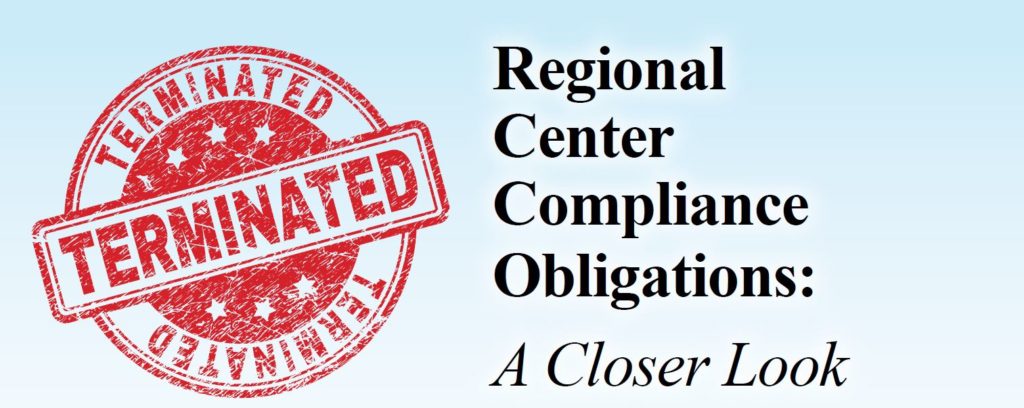
by David Morris, Managing Director, DC Regional Center
The opportunity to operate an EB-5 regional center (“RC”) is a privilege. Status as a designated RC is granted by the U.S. Citizenship and Immigration Services (USCIS) only after approval of a comprehensive operations proposal. Designation also imposes significant operational compliance obligations, including the duty to engage in sufficient monitoring and oversight of EB-5 capital investments. A RC’s failure to meet those duties serves as a legal basis for USCIS to terminate the designation – in other words, withdrawing the RC’s privilege to continue operations. The consequences of a termination decision can be earthshattering. First and foremost, it means the RC cannot sponsor any new EB-5 capital investment projects. Second, and more importantly, it may trigger the automatic denial of all pending petitions, and possibly the revocation of already approved petitions, submitted by RC-affiliated foreign investors.
Stepped up enforcement should naturally result in all RCs launching remedial measures to ensure continued compliance. But, that may not be as easy as it sounds for the simple reason that USCIS has failed to provide clear guidance defining RC compliance requirements.
For example, there is no clear definition of RC “oversight” duties or the associated standard of care required for such obligations. There are no published protocols or parameters defining minimum required “monitoring” actions. Similarly, there is no published checklist of standard RC operational documentation to be collected and maintained, nor any published list of RC records that must be presented to USCIS in an audit. There is no guidance on how an RC can conduct a voluntary self-audit to conform compliance practices and operations. This article provides an overview of legal context and practical recommendations regarding RC compliance, in two parts: Part I examines the primary legal theories advanced by USCIS in RC termination proceedings based upon the failure to meet compliance standards, or the failure to maintain sufficient oversight and monitoring. Part II shifts the focus to RC self-governance by examining compliance risks of a RC that fails to follow its own self-established monitoring and oversight standards as promised in its USCIS approved I-924 Application for Regional Center Designation, and by proposing a RC engage in a voluntary audit of its existing compliance protocols and to modify practices to match prior commitments made to USCIS. This article represents a condensed version of the author’s significantly more in-depth treatment of RC compliance in a forthcoming book (publication anticipated 2019).









